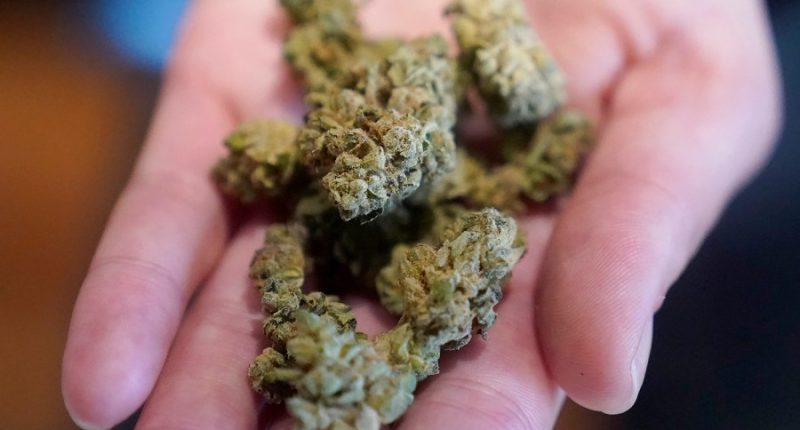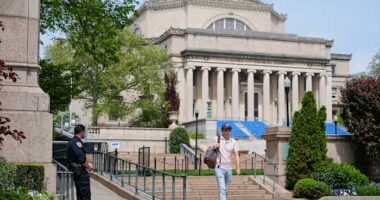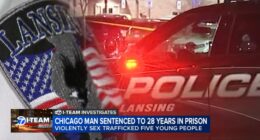Share this @internewscast.com

Texas lawmakers have passed a ban on nonmedical sales of THC, the intoxicating ingredient in cannabis, sending the measure to Gov. Greg Abbott (R).
“If it gets you high, it is not legal anymore” state Rep. Tom Oliverson (R), who sponsored the House bill, told The Dallas Morning News.
In passing the ban, Texas joins a wide array of states, including Colorado, Iowa, Arizona, Hawaii and Alaska, that have banned or restricted intoxicating forms of hemp, or the compounds derived from it.
It comes alongside a push by Texas Republicans to significantly expand the state’s medical marijuana program.
Under the new ban, possession of hemp products now carries a dramatically stricter penalty than possession of up to 2 ounces of marijuana.
Lt. Gov. Dan Patrick (R) had threatened to hold up the state’s ability to pass a budget if the House didn’t pass S.B. 3, the companion legislation in the Senate.
“We cannot in good conscience leave Austin without banning THC,” Patrick said in a video posted on Monday.
“I’ve been here for 17 years at the Texas Capitol 10 years as your lieutenant governor. I’ve never been more passionate about anything,” he added.
If signed into law, the bill would represent a “minor earthquake for the state’s economy,” the Texas Tribune reported.
A study funded by the Texas hemp industry found that the hemp business generates more than $5 billion in revenue and employs more than 53,000 workers, at an average of about $40,000 per year.
The Texas Hemp Business Council, which had fought for security measures such as age verification and child-resistant packaging instead of a ban, vowed to sue over the bill, which it said “dismantles the legal hemp industry.”
Since 2019, Texas has been at the forefront of a national experiment in back-door cannabis legalization, after the Legislature passed a bill legalizing “consumable hemp,” as opposed to the industrial variety used for fiber.
That bill followed the 2018 passage of the Farm Bill by the all-Republican caucus. The language of that bill inadvertently laid the foundation for cannabis legalization across the country — provided it was called hemp, rather than marijuana, which is still illegal in Texas for nonmedical use.
The law, however, created no guardrails, regulation or safety testing for the new industry that sprung up something exacerbated by the Food and Drug Administration’s refusal to meaningfully regulate hemp-based foods and beverages.
Six years later, with pre-rolled joints and THC-infused drinks available at sleek dispensaries and run-down gas stations in the state, many conservative legislators now view that loophole as a mistake.
“What began in 2019 as a bipartisan effort to support Texas agriculture has since been hijacked by a cottage industry of unregulated THC sellers,” Oliverson said, per the Texas Tribune.
For medical marijuana providers in Texas and elsewhere, the hemp industry is a wild-west competitor not subject to the strict safety testing, sales limits or security controls that govern legal marijuana.
As such, many of the states that preceded Texas in banning hemp like Alaska, California and Colorado have tightly regulated legal recreational and medical marijuana programs, for whom the hemp industry is a wild-west competitor.
Texas’s small medical cannabis industry has supported of restrictions on hemp, which its leaders say threaten to drive them out of business and that corner of the industry stands to win big this session.
In addition to a ban on its gray-market competitors, new legislation likely to pass this session would widen the number of covered conditions that can be treated with marijuana in Texas, and create licenses for nearly a dozen new dispensaries across the state.
But unlike in Colorado or California, recreational users in Texas will be largely out of luck or will turn to the black market, state Democrats argued.
While bill opponents acknowledged the problem of an unregulated industry, they argued that the solution was to make sure the widespread demand for THC was met safely.
“Bans don’t work,” said Dallas-area state Rep. Rafael Anchía, (D). “We’ll return to a completely unregulated black market where these products will find their way to young people today. If anybody’s to blame about the state of affairs, it’s us, in underregulating this marketplace.”











